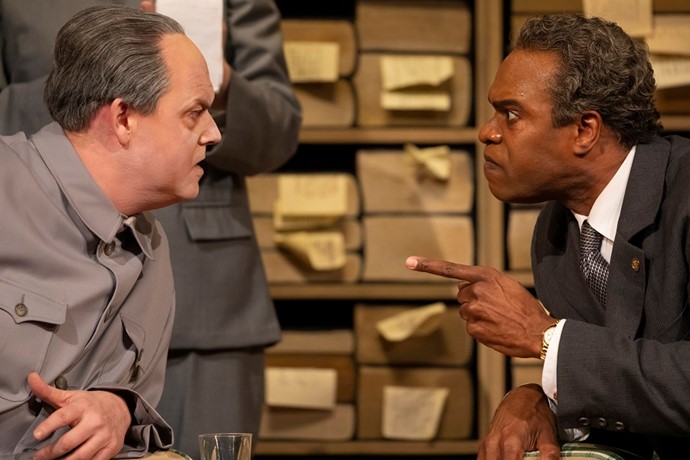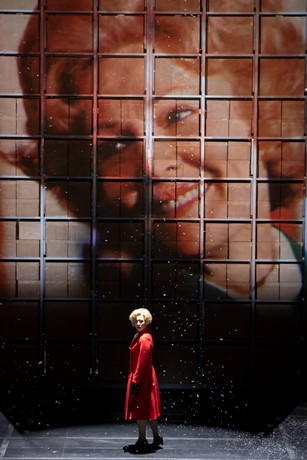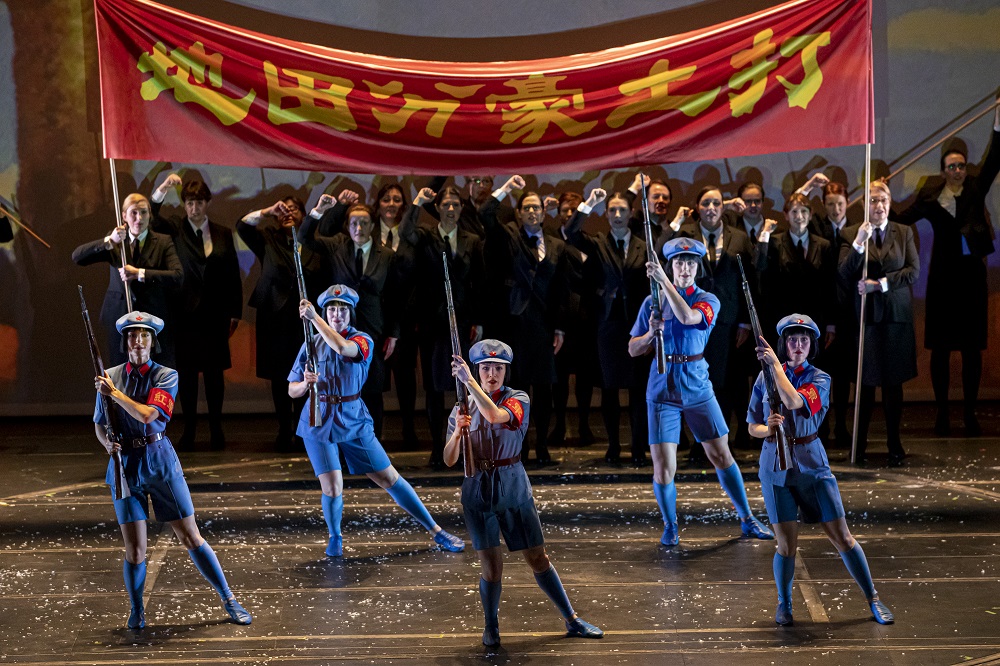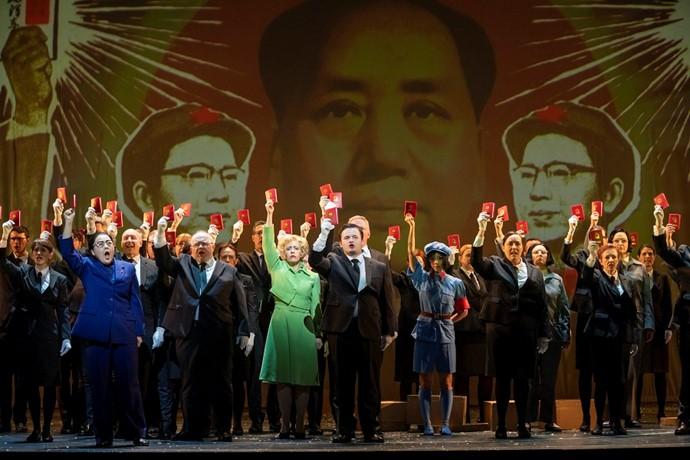Scotland was at the cutting edge of culture in 1988, when the Edinburgh International Festival hosted the UK premiere of Nixon in China in the Houston Grand Opera production at the cavernous Playhouse. John Adams’ first opera, documenting the historic meeting between Richard Nixon and Mao Tse-tung in 1972, was about as hot off the press as you can get, having been premiered in the USA only the year before, and came to Scotland with most of the original cast in the now iconic production directed by Peter Sellars.
Over 30 years later, for Scottish Opera to mount its first production of Nixon is clearly a major cultural event, not least because John Fulljames’ impressive new staging represents a collaboration between Scotland’s national company and two great European houses, Teatro Real Madrid and the Royal Danish Theatre. Those who might have complained in the past at Scottish Opera’s lack of ambition have fewer legs to stand on. And if anyone doubts the power of a major late-20th century opera to fill a theatre, they need only listen to the cheers at the end of Thursday night’s show from a packed Festival Theatre.  But for all its opulence, innovation (we’ll come to that later), and extravagant staging, this production of Nixon in China struggles to regain the relevance it would have had in 1987. The global context has changed, and while Richard Nixon’s visit to China remains a great act of international diplomacy (mainly engineered by Henry Kissinger), it has been overshadowed by others: indeed part of the backdrop to Act 2 included projections of other pivotal relationships such as Reagan-Gorbachev, Kennedy-Khrushchev and even Boris Johnson-Nicola Sturgeon (a cheap laugh). The poetic, ambiguous and sometimes simply strange libretto by Alice Goodman attempts to mythologise this encounter but instead renders it somewhat banal.
But for all its opulence, innovation (we’ll come to that later), and extravagant staging, this production of Nixon in China struggles to regain the relevance it would have had in 1987. The global context has changed, and while Richard Nixon’s visit to China remains a great act of international diplomacy (mainly engineered by Henry Kissinger), it has been overshadowed by others: indeed part of the backdrop to Act 2 included projections of other pivotal relationships such as Reagan-Gorbachev, Kennedy-Khrushchev and even Boris Johnson-Nicola Sturgeon (a cheap laugh). The poetic, ambiguous and sometimes simply strange libretto by Alice Goodman attempts to mythologise this encounter but instead renders it somewhat banal.
The principals were good: strong-voiced (we’ll get to that later, too) and persuasive in their individual roles. In the title role Eric Greene’s baritone speaks (more than Nixon might have done) of empathy and suffering, while his wife Pat, sung by Julia Sporsén, is lighter and, true to character, slightly hysterical. David Stout brought a stout and resolute bass to the wily Kissinger, while Nicholas Lester was lyrical and reflective as Chairman Mao’s prime minister. Mao himself, sung by Mark Le Brocq (pictured above with Greene's Nixon), coughing and spluttering into a handkerchief, in an eerie pre-echo of the public health emergency now gripping the world, was eclipsed by the supercharged appearance of Hye-Youn Lee as Madame Mao, delivering the Party message in a succession of dizzyingly high notes.
 If the parts were good, their sum was lacking. It is perhaps ironic that an opera dealing with real events comfortably within the lifetime of most of the audience, including this reviewer, should somehow feel less relevant than a tragedy enacted in a 19th century Bohemian garret. For all the busy, chattering insistence of Adams’ remarkable score, this Beijing reunion does not get under the skin. There’s always an exception, of course, and in this case it was Pat Nixon’s horrified reaction to a brutal play depicting the suffering of Chinese peasants: a moment of Straussian grandeur in the music brought us close to tragic sympathy (Sporsén in the remarkable monologue of Pat Nixon earlier in the act pictured right).
If the parts were good, their sum was lacking. It is perhaps ironic that an opera dealing with real events comfortably within the lifetime of most of the audience, including this reviewer, should somehow feel less relevant than a tragedy enacted in a 19th century Bohemian garret. For all the busy, chattering insistence of Adams’ remarkable score, this Beijing reunion does not get under the skin. There’s always an exception, of course, and in this case it was Pat Nixon’s horrified reaction to a brutal play depicting the suffering of Chinese peasants: a moment of Straussian grandeur in the music brought us close to tragic sympathy (Sporsén in the remarkable monologue of Pat Nixon earlier in the act pictured right).
The production is impressive visually, and bristling with technical innovation. The set is dominated by huge towers of archive boxes, held in vast metal frames, which glide back and forth across the stage, more often than not illuminated by projected images, many of them explicitly referring to the severity of the Chinese regime. The projections are clever: particularly in the case of the large wooden cube that appears in the first and third acts, rotating in such a way that images stay centred on each face of the cube – how this is achieved I found so baffling that while it was going on I paid little attention to what else was happening on stage. In Act One, Nixon’s jet arrives in Beijing on eight coordinated projector screens which rotate on a central revolve, a clever effect that speaks of a technical manager who expects no nonsense from the stage crew – this was set up with millimetric precision in seconds. 















Add comment